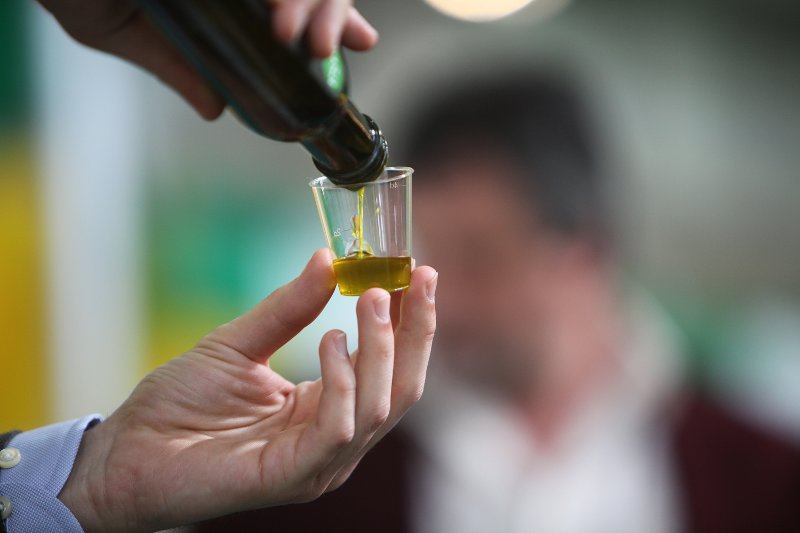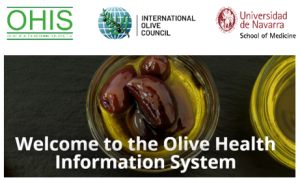

The website of the International Olive Council
 The specific metabolic contribution of consuming different energy-yielding macronutrients (namely, carbohydrates, protein and lipids) to obesity is a current topic of debate. A recent review summarizes the existing evidence concerning associations between the intake of different macronutrients with weight gain and adiposity. Overall, current evidence suggests that energy surplus is the main driver of overweight and obesity. On the contrary, the question of refined sugars and some fats playing complementary roles in weight gain and whether calories from different macronutrients count as equal still remain very controversial. In this regard, dietary patterns particularly rich in sources of monounsaturated fats, such as extra virgin olive oil in the Mediterranean diet, have been inversely associated with BMI. This highlights the importance of the fat profile and not just the total amount of fat or differences attributed to genetic background.
The specific metabolic contribution of consuming different energy-yielding macronutrients (namely, carbohydrates, protein and lipids) to obesity is a current topic of debate. A recent review summarizes the existing evidence concerning associations between the intake of different macronutrients with weight gain and adiposity. Overall, current evidence suggests that energy surplus is the main driver of overweight and obesity. On the contrary, the question of refined sugars and some fats playing complementary roles in weight gain and whether calories from different macronutrients count as equal still remain very controversial. In this regard, dietary patterns particularly rich in sources of monounsaturated fats, such as extra virgin olive oil in the Mediterranean diet, have been inversely associated with BMI. This highlights the importance of the fat profile and not just the total amount of fat or differences attributed to genetic background.
The International Olive Council (IOC) hosted a presentation of the second edition of the Olive Oil World Congress (OOWC) at its headquarters in Madrid on 4 February 2026, as part of efforts to strengthen the event’s...

The International Olive Council (IOC) welcomed today a group of agricultural counsellors from several European embassies in Madrid for a dedicated virgin olive oil tasting session at its headquarters. The event was held at...

Highlighting mediterranean cooperation in the olive sector The International Olive Council (IOC) is taking part in the VI AOVE Fórum Internacional – Fira de Tots Sants de Cocentaina, a key event promoting...
The IOC and the University of Navarra, through OHIS (the Olive Health Information System), a platform dedicated to research on the health properties of olive oil and table olives, publish a weekly or bi-weekly collection of scientific articles and summaries of research carried out in this field.
These articles highlight the numerous health benefits of these products.
You can read the summaries of this research here in French, English and Spanish and access the list of articles, or visit the OHIS portal.
For any assistance, please contact iooc@internationaloliveoil.org.


Cucinare oggi: mille idee dalla dieta mediterranea
Scelte alimentari giuste, sane e piene di gusto: il Culinary Institute of America e il Consiglio oleicolo internazionale lavorano a un progetto comune – con un focus su formazione tecnica e menu innovativi dedicato agli chef. Scoprilo qui.